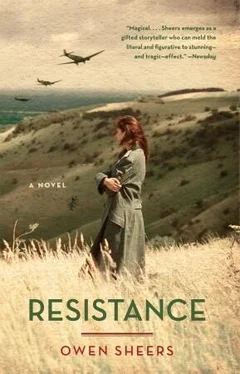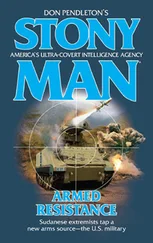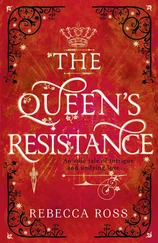It had been much harder, once they’d settled Maggie in her bed, to persuade Sebald to leave them completely. But Sarah had pleaded with him; he couldn’t stay, not now, not after what had happened. Something in her expression, a note of desperation in her voice must have finally connected with him. “Ja, ja,” he’d said, nodding his head and picking up his rifle from beside the door. “Ich verstehe.” Sarah stood in the hallway with her back to the door and listened as the motorbike engine gunned into life then faded out of the yard and on down the lane.
Since then Sarah had been alone with just her confused thoughts for company. She’d checked on Maggie regularly, given her water when she could, but the woman she knew was no longer there. For the rest of the day she’d sat downstairs in the kitchen and waited, for what, she didn’t know.
Sarah felt she was to blame. Someone had shot the colt. Someone from outside the valley, and because of what had happened at the show. But Maggie would not have known about the show if Sarah hadn’t brought that poster back from the priory and shown her. She hadn’t even needed to go down to the priory; they could have filled the water bottle in the streams. But she’d had to get away from Albrecht, that was why she’d gone. For her own sake, she’d had to get away from him then, and she’d had to see the chapel and the priory too. Not just see them either, but touch them, smell them. That chapel was where she’d married Tom and she’d hoped, she supposed, that the place would still hold a resonance of that day. That somehow, standing within its bare walls, looking up again at the high, simple windows, she would have been able to gather the echoes of how she’d felt then; Tom’s forearm contracting under her touch, the smell of starch on his collar, and the wind picking at her veil. But she’d found no memory and heard no echo other than her own footfalls over the worn gravestones laid in the flagstone floor. All she’d brought back with her was that poster, taken from the chapel’s notice board, which had led to this: Maggie lying upstairs, no more than a husk of herself, and her, sitting in the kitchen as the day darkened at its window, not knowing whether to be terrified or joyful at her husband’s possible return.
As Sarah lit one of Maggie’s oil lamps, she heard Maggie’s two dogs moving outside, their chains dragging on the cobblestones of the yard. They began barking, the younger bitch’s thin yelps over the older bitch’s less regular, deeper growls. She replaced the glass chimney over the wick and the flame grew inside, its illumination expanding and growing within the lamp. Standing there, motionless with the lamp in her hands, she listened hard. She could hear faint footsteps getting louder, quick footsteps, then the front gate opening and closing. Someone was coming into the yard. The dogs settled as the footsteps approached. Sarah put the lamp on the table then reached for the shotgun and went out to stand at the back of the hallway, pointing the gun at the closed front door. The hallway was dark. Whoever opened the door wouldn’t see her straightaway. She would have a second, maybe more, to decide.
At first, when Albrecht stepped into the hall, Sarah didn’t recognise him. She’d grown used to seeing him almost every day, but not like this. For the past few months he’d been wearing clothes from The Court like the rest of the patrol. Now, however, he stood before her wearing the same full uniform as he’d worn that night when she’d first mistaken his footsteps for the tread of her husband. The bulky leather holster of his pistol hung at his hip and his tunic was undone, as were the upper buttons of his shirt beneath. His hands were stained with earth and soil.
“Sarah?” he said, peering into the dark. She lowered the shotgun and stepped forward so he could see her. “Sarah,” he said again, coming quickly towards her and taking hold of her shoulders. “We must leave.”
Albrecht had never once questioned his decision to guard the women in the wake of the colt’s shooting. If their situation was known, then surely they were in danger as much from the British insurgents as from the Gestapo and the German army. So when he got back to Mary’s house, he hadn’t expected her to tell him coldly that she’d asked Gernot to leave, or when he returned to The Court that he’d find Sarah had asked the same of Sebald. “They don’t want us near them,” Sebald had explained to him. “Surely you can understand that? If their husbands are coming back, we’re the last people they want protecting them.”
Sarah went back into the kitchen and Albrecht followed her. She sat down, putting the shotgun on the table while he went to the window and looked out anxiously at the gathering night. He turned back to her and leant against its sill. “It’s Steiner,” he said with a sigh. He looked exhausted; a vein at his temple pulsed under his skin as he spoke and his hands were trembling. “He’s taken the radio. He’s contacting the local command unit.”
Sarah sat very still, taking in what this meant. “What will he tell them?” she said eventually, drawing the lamp closer to her across the table.
Albrecht ran his fingers through his hair, leaving a streak of mud across his forehead. “I don’t know,” he said, sighing heavily again and shaking his head. “Report insurgent activity? Give them our position? Ask for reinforcements?” Suddenly he laughed, brief and shallow. “Report an officer unfit for duty perhaps?”
He looked back out the window, searching for points of torchlight, listening for the crunch of boots on the lane. This was his fault, he should have seen it coming. When Gernot hadn’t returned, Steiner had got anxious. He’d wanted to go out and look for his friend. But Albrecht didn’t let him go. He hadn’t wanted to let the young soldier out of his sight. He’d wanted to follow the plan he’d made the night before. Well, now Steiner had made the choice for him. He didn’t blame him. Everything was fraying and unravelling and all of them must look to save themselves now, however they could. Steiner had been clever. This would go well for him at the court martial, reporting the discovery of an insurgency cell. And couldn’t Albrecht have stopped him if he’d really wanted to? Couldn’t he have drawn his pistol and aimed it at Steiner’s back as he’d scrambled up the slope behind The Court? Or couldn’t he even have caught up with him? Steiner was, after all, carrying the heavy radio pack. But he hadn’t. He’d just followed him instead, and when Steiner did eventually pause to look down the slope, Albrecht had stopped too and looked back up at him. For a moment they’d remained like that, a mirror image of their positions on that day when Albrecht had first persuaded Steiner to walk with him to the top of the hill. They didn’t say anything and they didn’t have to. In those few seconds both men saw and knew each other more clearly than ever before. And that was why when Steiner turned and carried on up the hill Albrecht didn’t follow him again, but just watched him shrink away out of sight instead before continuing himself, running not up, but along the slope towards the head of the valley and Maggie’s farm.
“Was it them?” Sarah said, trying not to become panicked by Albrecht’s behaviour.
Albrecht looked at her, frowning as if he hadn’t heard her. “What?”
“Was it Tom?” she said more clearly. “Was it Tom an’ the others who killed Maggie’s yearling?”
“No,” Albrecht said emphatically, shaking his head again. “No, it couldn’t have been. Not here.”
“How d’you know?”
He didn’t know, but that didn’t matter anymore. Leaving the valley, that was all that mattered now. He came and sat down at the table beside her. “Sarah,” he said, speaking more slowly, the muscle tensing at the hinge of his jaw. “Do you understand what I said just now? Steiner has radioed out. They will send soldiers, a whole company perhaps. The Gestapo will come with them. If we stay here, they will kill us.” He paused, lowering his head so she couldn’t avoid his eyes. “We will die.”
Читать дальше












